State of Charge
Charging Station Reviews
We independently review every item we recommend. If you buy through our links, we may earn a small commission that helps us continue to make quality content for you. Thanks for your support!
Topdon PulseQ AC Home EV Charging Station Review
A good first effort, but improvement is needed
Table of Contents:
If you know anything about automotive diagnostic tools, then the name Topdon might ring a bell. This China-based company manufactures things like car battery chargers and testers, jump starters, and other devices for identifying whatever ails your car. Recently, they decided to jump into the electric vehicle supply equipment (EVSE) business as well– leading to the birth of the Topdon PulseQ AC Home.
The Topdon PulseQ is a 40-amp level 2 EV home charging station with smart features that starts at a pretty reasonable $449.00. Since that struck me as a pretty intriguing combination, I decided to reach out to Topdon and request a unit to review. Once it arrived, I used the unit over the course of several weeks to charge several electric vehicles before submitting it to my usual tests.
Key Specs of the Topdon PulseQ AC Home
The Topdon PulseQ AC Home is a plug-in EV charging station that uses a 240v NEMA 14-50 plug or can be hardwired on a dedicated 50-amp circuit. The unit arrives with the connection holster, manual, mounting template, drywall screws, and hollow wall anchors. It is worth noting that the power cable itself is only about 12 inches long, meaning that you’ll want to install it relatively close to your power outlet.
Installing the PulseQ is very simple. It comes with the mounting bracket already attached to the back, so all you have to do is unscrew the thumbscrews on the bottom of the unit to pop it off. The mounting template makes drilling holes quick and easy, and then you can mount the bracket in the preferred place with the provided screws– preferably on a stud for extra security. Once the plate is on the wall, you can slide the two screws on the back of the unit into the corresponding holes, reattach two thumbscrews at the bottom corners, and you’re done.
The Topdon PulseQ can also be hardwired if you want. I prefer to have charging stations hardwired because it reduces the chance of a possible electrical failure in your home. The safest choice for the home installation of a hardwired EV charging station is to hire a licensed and bonded electrician. I personally recommend my channel sponsor Qmerit for the job. As North America’s leading provider of installation services for EV charging, home energy storage, and other electrification technologies, you can count on them to get the job done right.
The next step is to install your remote connector holster. You can put it anywhere in your garage; it doesn’t have to be right next to your EVSE. The connection holster is unique in its design, made up of two pieces that are layered together before you attach it to the wall via the provided screws. You can use the mounting template again to mark where you want to drill your holes. Again, doing this on a stud is your best choice, because you’ll be working with a heavy cable that could potentially yank the charging station right out of the wall should an accident occur. Just make sure that you install the insert with the locking tab on top– otherwise, you’ll have to take it apart and re-mount it so that the connector can lock into place.
The Topdon PulseQ AC Home can deliver up to 40 amps (9.6 kW) to a single EV, meaning that it can add 20 to 40 miles of range per hour, depending on your EV's efficiency. It comes with either a 16-foot (5 meters) or a 25-foot (7.6 meters) charging cable option, and its J1772 connector will charge any EV in North America. Since it's both UL-listed and Energy Star certified, you can rest assured that your vehicle is charging efficiently and reliably. The PulseQ's NEMA 4 enclosure protects the unit against blowing rain and snow, meaning that you can install it outdoors.
Since this EVSE is a Wi-Fi connected smart charger, you can download the manufacturer's PulseQ App on a compatible device in order to use its more advanced features. From the app, the user can schedule charging, adjust the amperage that the unit delivers to the vehicle (from 6 to 40 amps), start and stop a charging session, and view real-time charging information and past charging sessions. Well, at least in theory. I tried at least a dozen times to link the unit to my app, and despite managing to successfully connect twice, I never could get the app to connect to my vehicle. After calling the tech support number and leaving a message, nobody ever called me back. I finally managed to reach someone via email who instructed me on how to reset the unit, but none of my troubleshooting ever got the app to work correctly.
I do want to point out that the PulseQ does work just fine without the app. I ended up using it for a few weeks as a non-smart charger, but what's the point of paying for something if you don't get to use the features? Hardware failures happen, and I have received chargers in the past where I've run into similar problems and the manufacturer had to send out another unit for it to work. Considering that I've seen a lot of good reviews for the PulseQ on Amazon and many people pointed out that they liked the app, it obviously must work. I just have to assume that I got a bad unit.
Testing
A new EVSE is a huge investment, making it super important to know how it'll hold up under various real-world conditions. A marketing pro can make anything look good in a catalog or website, but that doesn't mean the product will stand the test of time. I check how the EV home charging stations I try hold up under different types of conditions that consumers might encounter, and the Topdon PulseQ AC Home was no exception.
The Connector Drop Test
Everybody drops their charging connector sometimes. My connector drop test checks how it holds up after a few falls so that you have an idea of the quality and durability of a device before you purchase it. I do this by dropping the connector about five times from around chest height to the concrete floor below. The Topdon PulseQ AC Home passed this test with flying colors– it's a well-built, strong connector that didn't take any damage from my rough handling.
The Cable Deep Freeze Test
As always, I tossed the Topdon PulseQ AC Home into a commercial ice cream freezer for 24 hours to test how it would hold up in the cold. Why? Because there are few things quite as frustrating as spending hundreds of dollars on an EV charging station only to find the cable frozen stiff when you need to use it in the middle of winter. I measured the temperature inside the freezer at -15.5° F (-26.3° C) when I finally pulled the unit out. I could immediately tell that the charging cable had frozen really badly– it remained coiled up almost like a spring and wouldn't even stay on the wall after I hung it up. I hate to say it, but it looks like I have a new winner for the worst cold-weather-performing cable. If you live in a colder climate, you'd be much better off looking at a home charging station like the ChargePoint Home Flex if you want a cable that can withstand the bitter cold.
The Automatic Restart Test
A lot of newer EVSEs have an automatic restart feature. It used to be that if you had a power outage in the middle of the night, even for a couple of seconds, your car would stop charging and the charging station wouldn't restart the session. This feature is meant to keep you from waking up in the morning to find yourself with an uncharged battery. I usually check this feature while testing my EV home charging stations, but I never had a reason to go into detail about the results: until now. For this test, I plug my vehicle in to charge and then go to my circuit breaker to shut off the circuit to simulate a power outage. After a minute or two, I turn it back on, and what should happen is after 30 seconds to a minute, the car should start charging again. But the Topdon PulseQ AC Home didn't restart. I experimented with both my Ford Lightning and my Rivian R1T, and neither resumed the charging session. I even went as far as to borrow a friend's Tesla to try it with, and it still didn't work. To ensure there wasn't some unknown issue at play, I immediately plugged in my Ford Charge Station Pro to the same vehicles and performed the same test. After rebooting the circuit, every vehicle began recharging again after around 30 seconds, so I can say with certainty that the PulseQ was at fault. Talk about a huge fail.
While the ChargerRater is great at stacking up the points and spitting out a rating, I always offer my own personal rating as well. I gave the Topdon PulseQ a score of 3.5 stars out of 5 because of the issues I encountered, so after averaging the two scores together, I gave this unit a final rating of 3.95 stars out of 5. The PulseQ is a good first effort, but I’d want to see some improvements made before I’m comfortable adding it to my recommended list.
The Topdon PulseQ AC Home is available for $279.99 on Amazon with a 16-foot cable (as of April 1, 2024). Be sure to watch my full review in the video above, and tell me what you think about it in the comments below.

By: Tom Moloughney
YOU MIGHT ALSO BE INTERESTED IN:


EVChargingStation’s Comment Policy
We welcome polite, respectful comments, but rudeness and personal attacks will not be tolerated. All comments are reviewed prior to publication. Thanks for joining in the conversation!

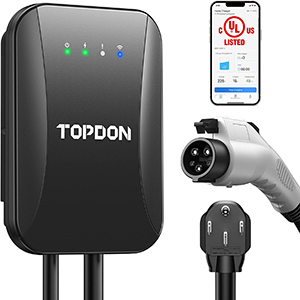
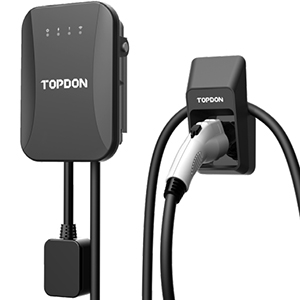
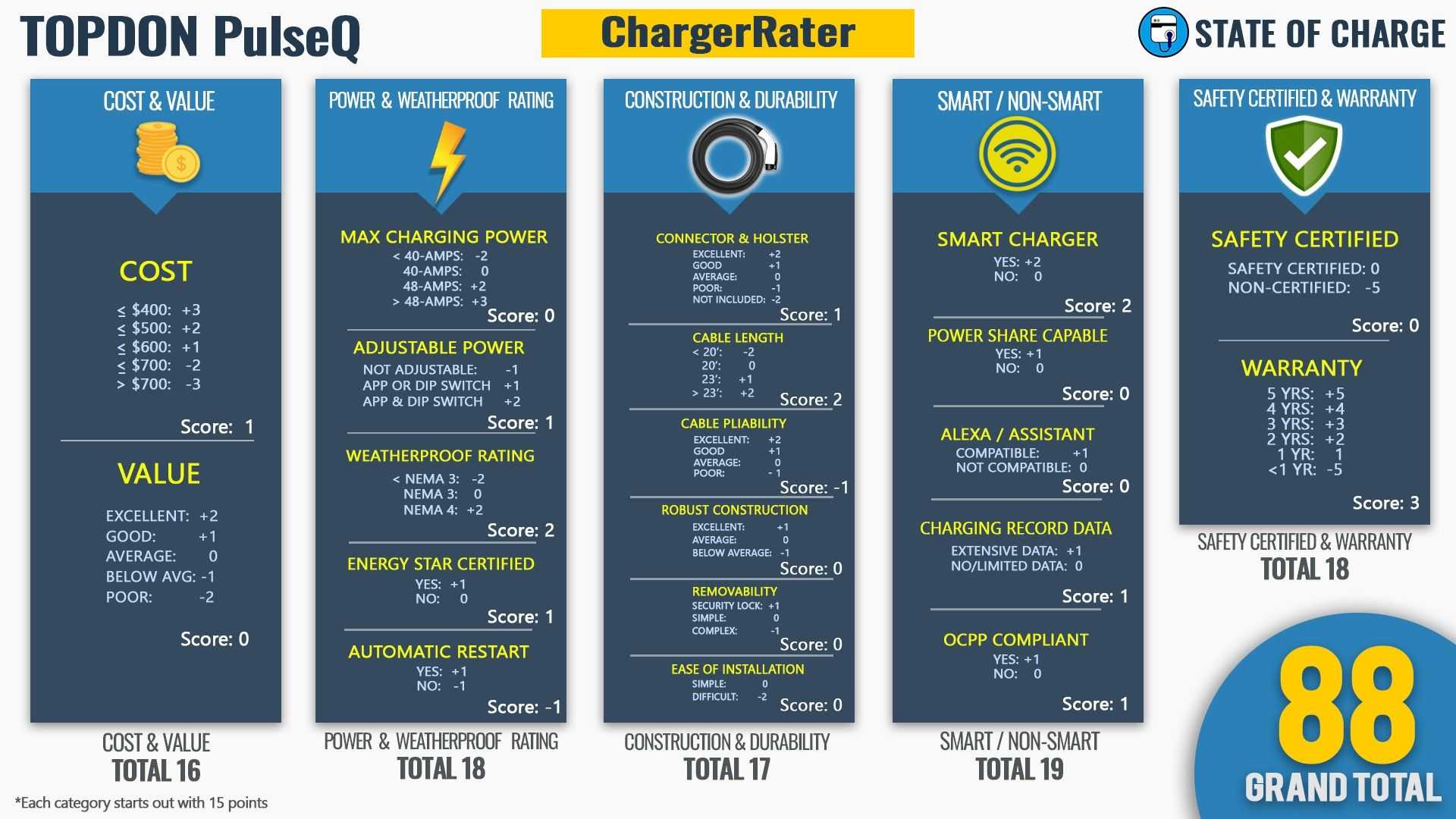
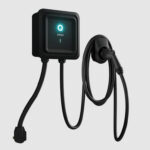

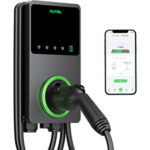

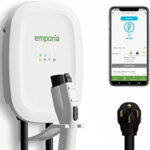

0 Comments